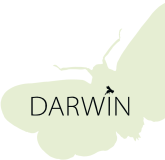
 |
Darwin Day 2026
|
||||||||||||||
Everyone is welcome! The lecture is intended for a wide audience, will be held in English, and is part of the
Horizons
seminar series of the Faculty of Science and Technology dedicated to big questions. Coffee and refreshments will be served from 15:45.

Samir Okasha is professor of philosophy of science and biology at University of Bristol, UK. He currently holds an ERC Advanced Grant on Representing evolution. He is the author of several books on evolutionary biology including Goals and agents in evolution, Evolution and the levels of selection, and the wonderfully concise A very short introduction to the philosphy of science that is used as curriculum in the first-semester intro course Ex. Phil. for students in Bergen.
| ||||||||
|
Why is the Darwin Day celebrated? Who is behind the Darwin Day in Bergen? The Darwin Day 2026 in Oslo will take place in September. Earlier events: 2025, 2024, 2023, 2022, 2020, 2019, 2018, 2017, 2016, 2015, 2014, 2013, 2012, 2011, 2010, 2009, 2008, 2007. | ||||||||
 |
UNIVERSITETET I BERGEN Institutt for biovitenskap |
